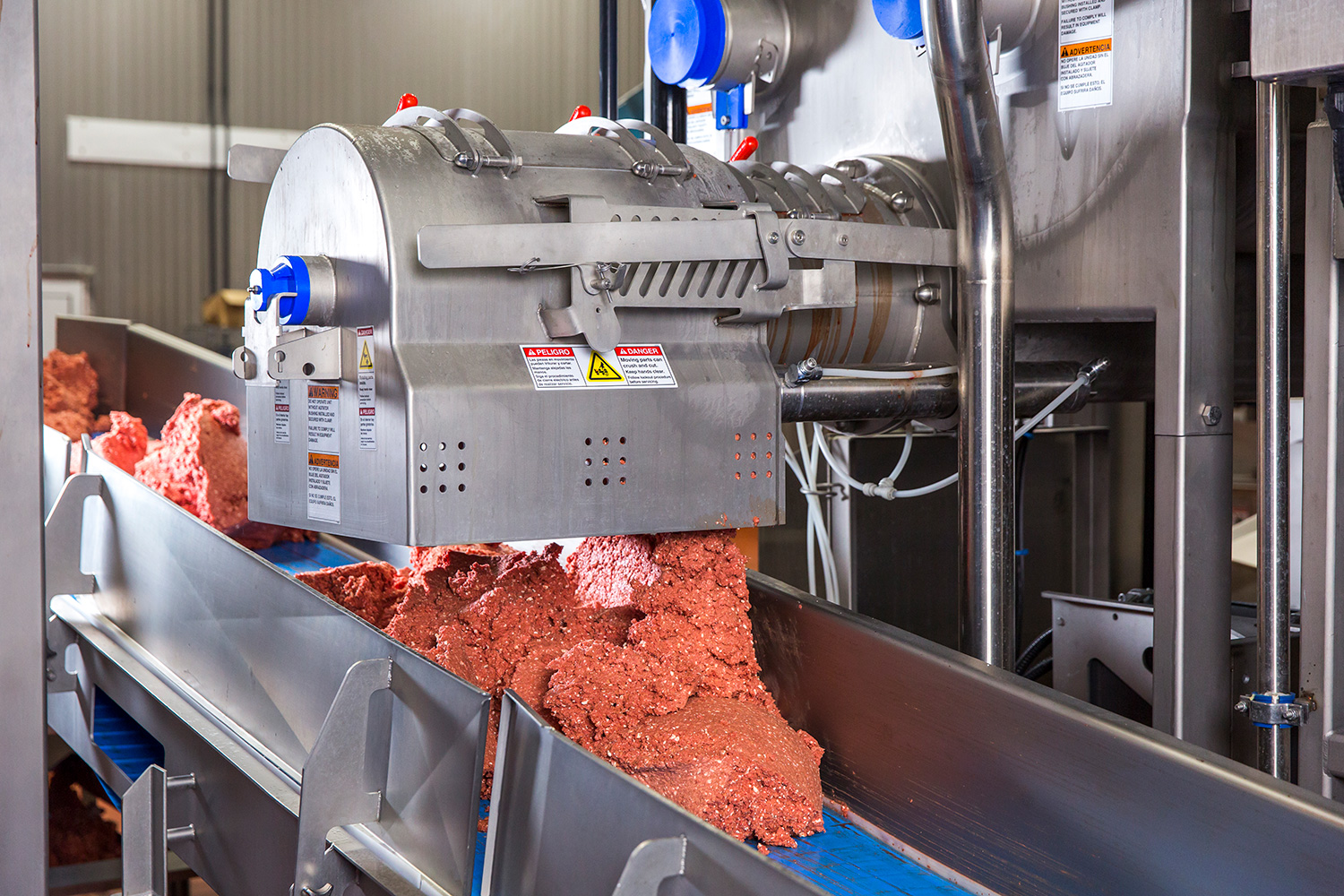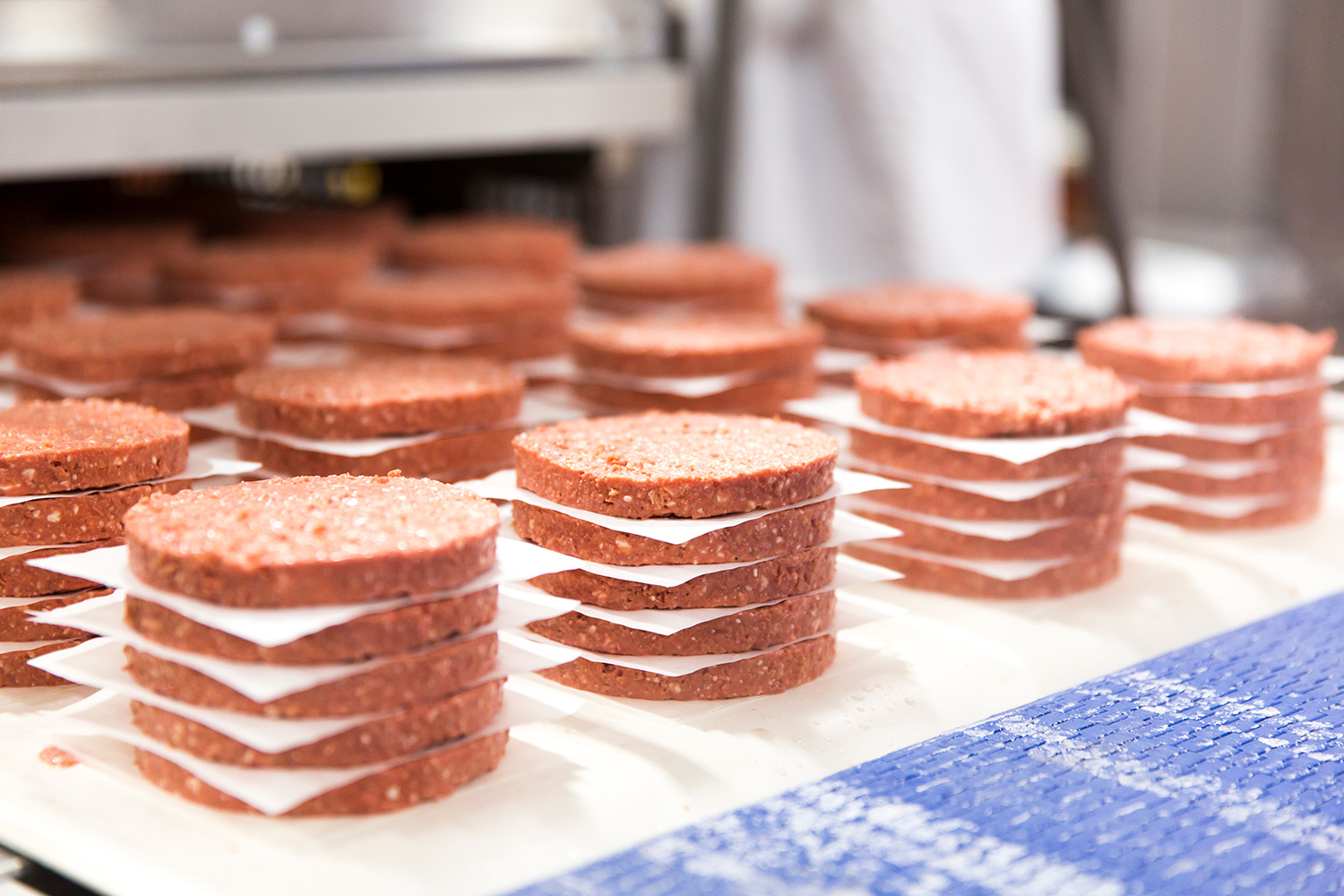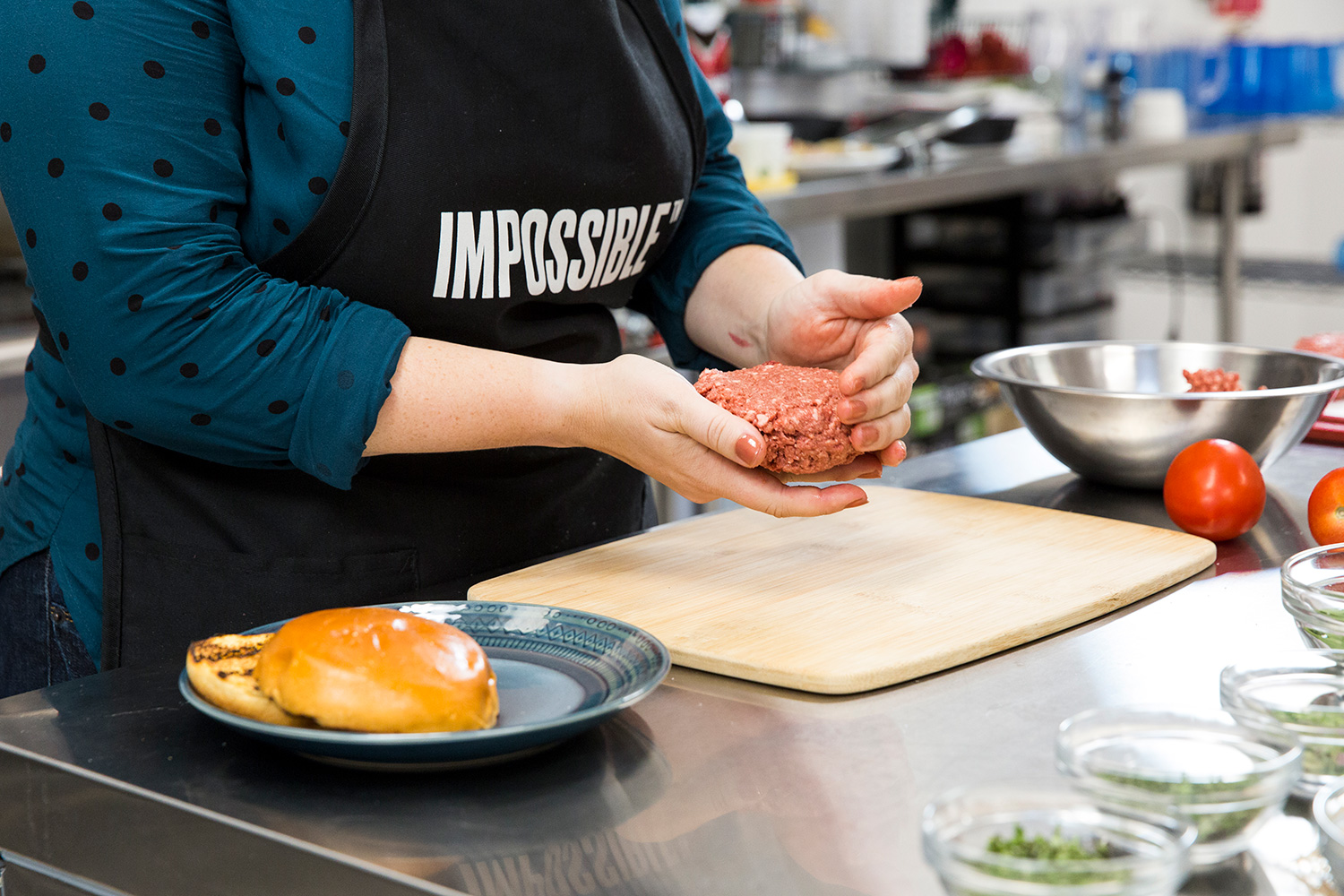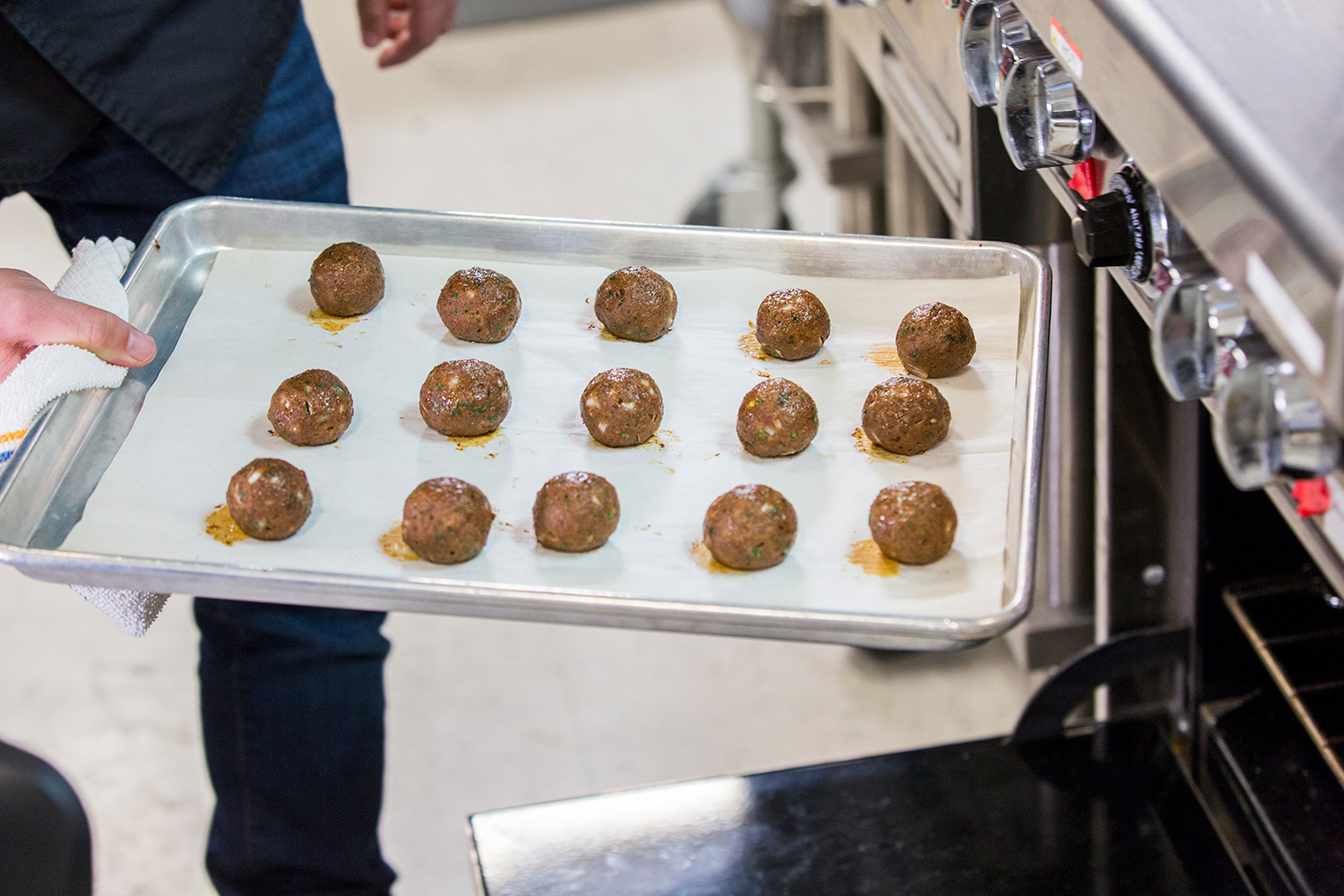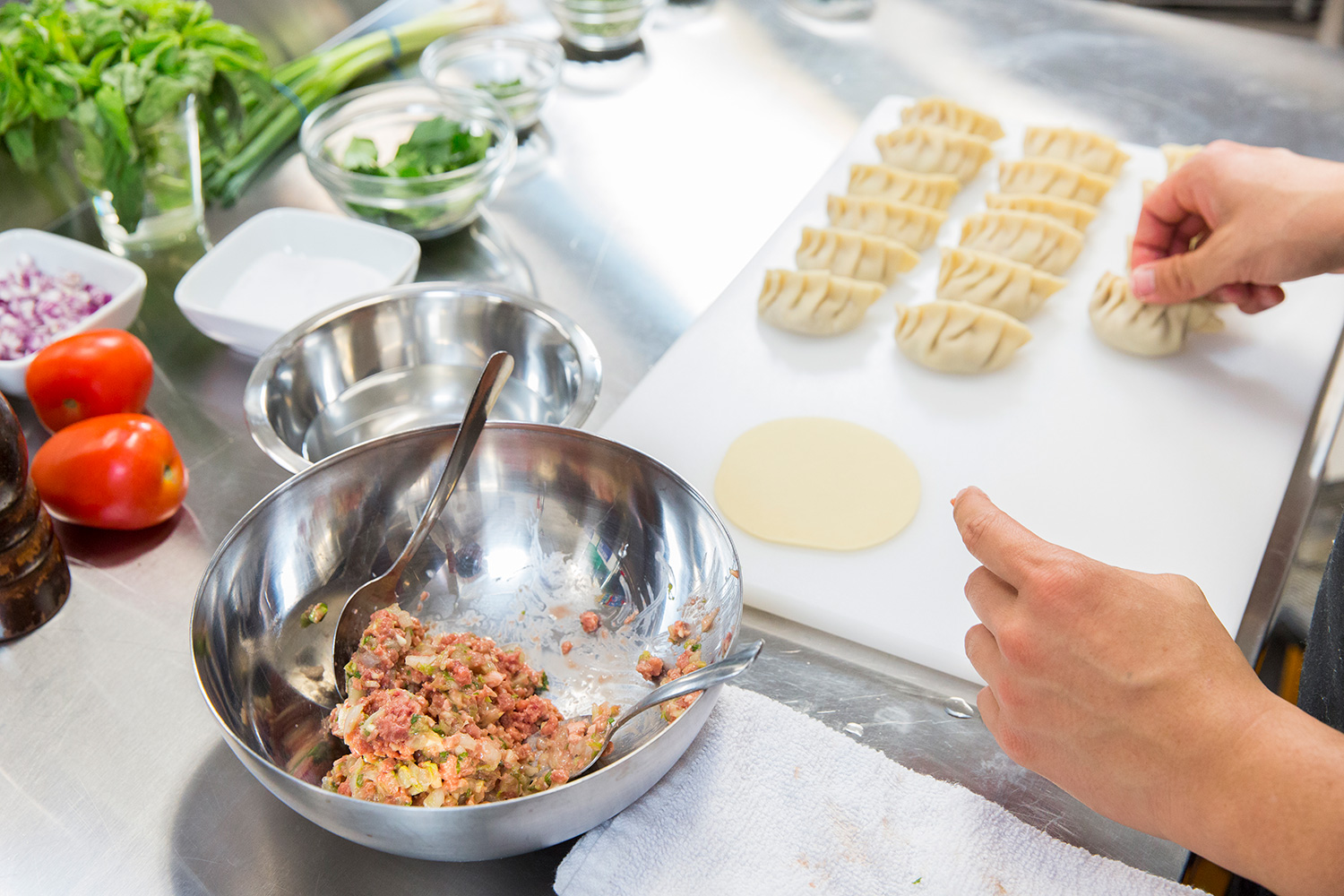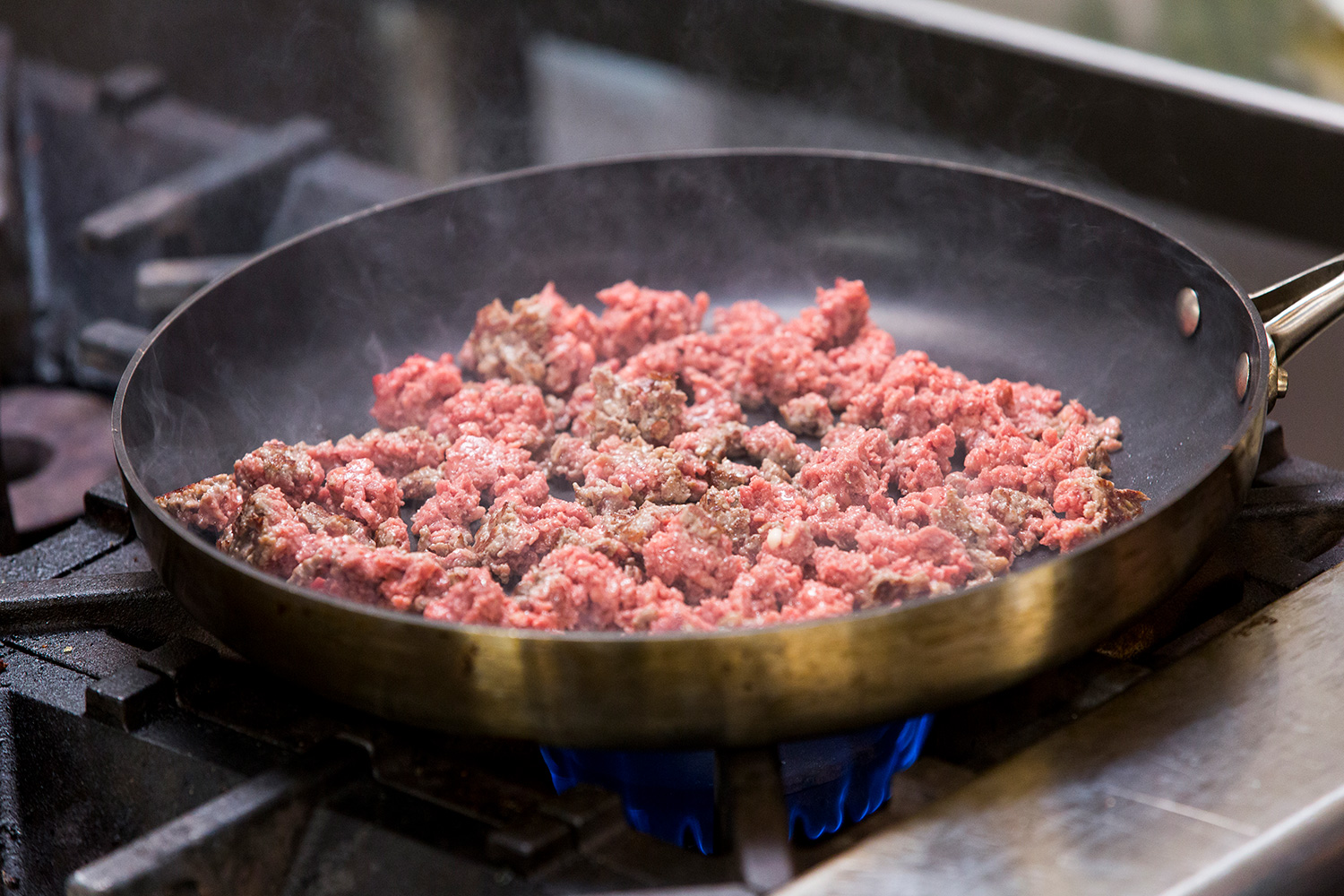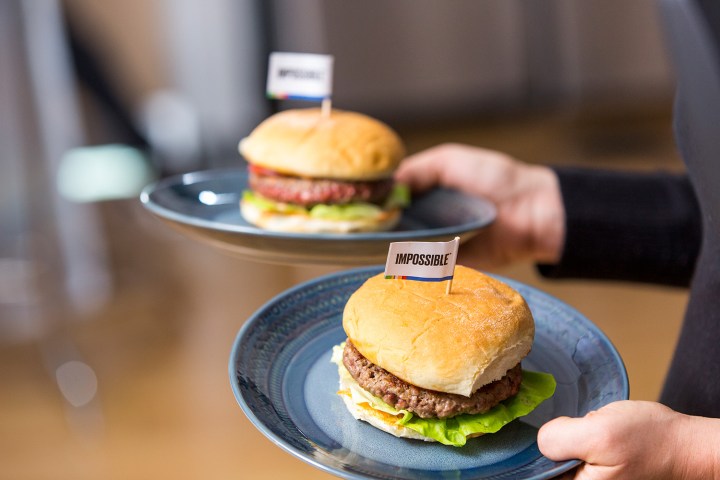
In a world of startups making shrimp out of red algae and 3D-printed beefsteaks, Impossible Food — makers of the bleeding veggie burger — stands as the best-known company in this brave new world of next-gen eatables. At CES 2019, the company announced its Impossible Burger version 2.0, the first time its recipe has received an upgrade since the award-winning plant-based meat debuted in 2016.
The CES 2019-era Impossible Burger contains no gluten, zero cholesterol, and reportedly the same level of bioavailable iron and high-quality protein as you’d find in conventional beef from cows. It has just 14 grams of total fat and 240 calories in a quarter-pound patty, compared with 23 grams of total fat and 290 calories in a quarter-pound patty made from cow.
“The newest Impossible Burger delivers everything that matters to hardcore meat lovers, including taste, nutrition, and versatility,” said Patrick Brown, Impossible Foods’ CEO and founder, in a statement. “This is the plant-based meat that will eliminate the need for animals in the food chain and make the global food system sustainable.”
While the new Impossible Burger is being debuted at CES, it won’t be long before people all over the U.S. get the chance to try it. That’s because, starting January 8, influential chefs from around the U.S. will begin serving the new recipe in their restaurants.
“Impossible Foods’ new recipe represents a quantum leap forward for food tech. This new recipe is a game changer.”
These eateries include (deep breath) Mission Chinese Food, and Saxon + Parole in New York City; Chef Tae Strain’s Momofuku CCDC in Washington DC; Jardinière, Cockscomb, and School Night in San Francisco; Border Grill in California and Nevada; Jackrabbit and Irving Street Kitchen in Portland, Oregon; Crossroads Kitchen in Los Angeles; B Spot burger restaurants in Ohio; Linger in Denver; Maillard Tavern in Chicago; Little Donkey in Boston, Copper Vine in New Orleans; Spice Finch in Philadelphia; and Sunset Pointe in Fairhope, Alabama. Starting February 4, the new recipe will then be available to all restaurants in the U.S. through major food distributors.
In other words, wherever you’re living, you shouldn’t have to travel too far to check out the possibilities of the Impossible Burger for yourself.
“Using animals to make protein is an ancient technology — and while it worked in the 19th century, it doesn’t sustainably scale for the 21st century and beyond,” said Milliken, the 2018 winner of the Julia Child Award for lifetime achievement. “We need more innovation in the food sector so meat lovers can keep eating their favorite foods — without destroying biodiversity. I’ve been watching Impossible Foods for years and am thrilled to see the quantum leap forward of this next-generation recipe.”
Editors' Recommendations
- New Live Share feature for Teams is like screen sharing 2.0
- Animal Crossing: New Horizons’ 2.0 update is gigantic
- I tasted Impossible Pork and it’s even more meat-like than Impossible Burger 2.0
- You can finally buy the Impossible Burger at grocery stores
- New leak shows off Samsung’s One UI 2.0 — and it’s built on Android 10
